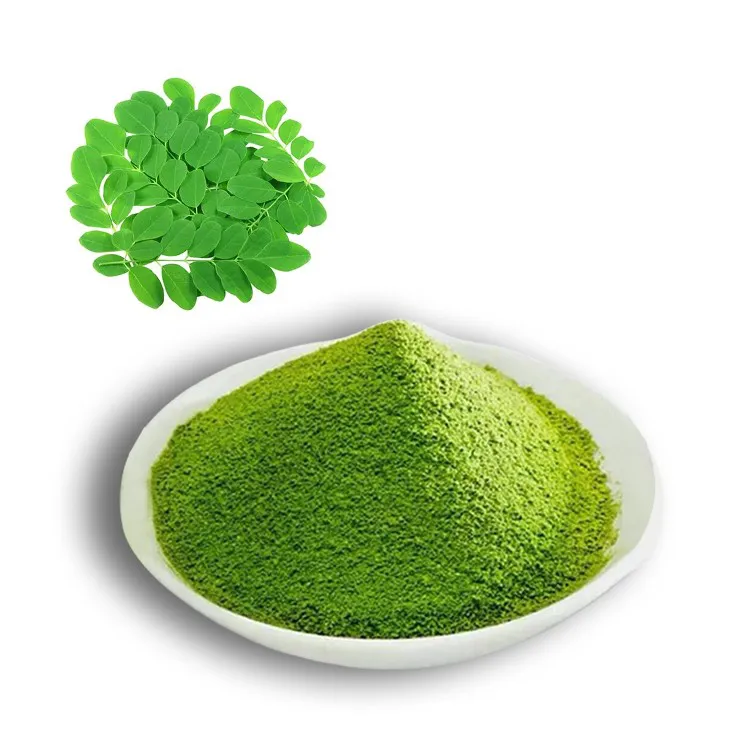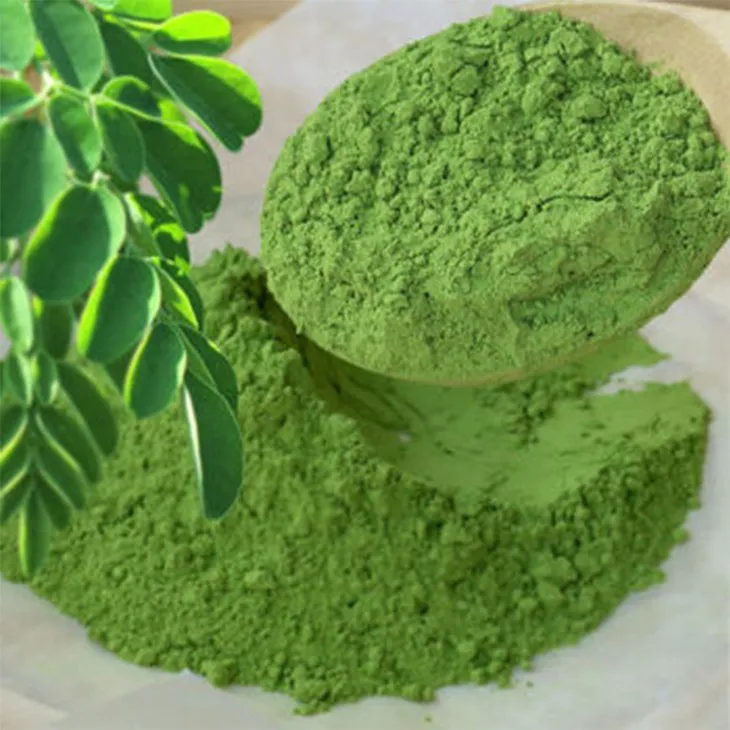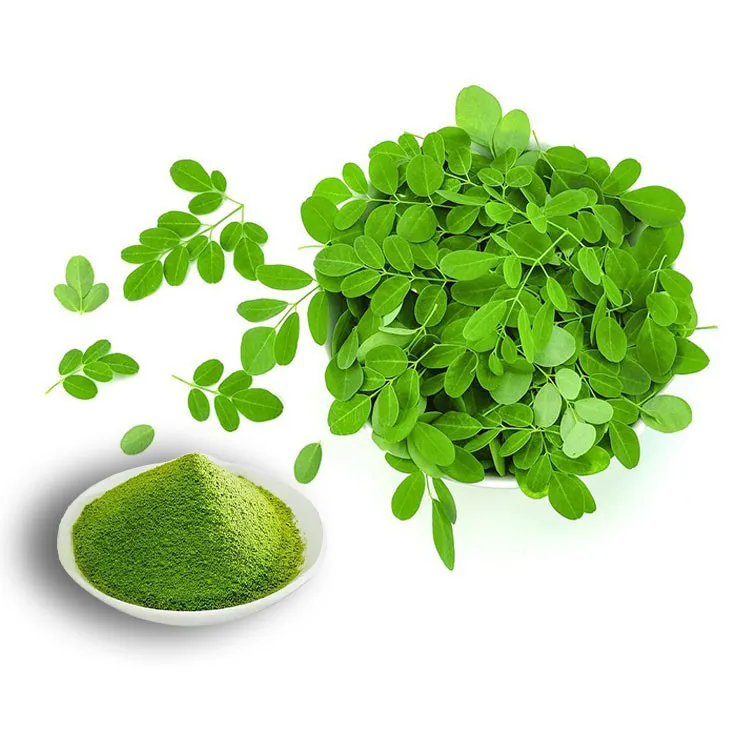- 0086-571-85302990
- sales@greenskybio.com
Organic Moringa Powder Manufacturers.
2024-11-30

1. Introduction
Organic Moringa powder has emerged as a highly desirable product in the contemporary health - conscious society. Manufacturers of this powder are crucial elements in determining its availability and quality. They operate in an industry filled with both challenges and opportunities.

2. Sourcing of Moringa Leaves
The first and fundamental step for organic Moringa powder manufacturers is sourcing the appropriate moringa leaves.
2.1. Quality Requirements
Manufacturers must ensure that the leaves are of the highest quality. They should be organically grown, which implies that no synthetic pesticides or fertilizers are used during cultivation. Additionally, the leaves need to be harvested at the correct time. Harvesting too early or too late can affect the nutritional content and overall quality of the leaves.
2.2. Different Sourcing Models
- Some manufacturers have their own dedicated moringa farms. This gives them complete control over the cultivation process. They can implement strict organic farming practices, such as using natural fertilizers like compost and manure. For pest control, they might use biological methods like introducing beneficial insects that prey on pests.
- Other manufacturers rely on a network of farmers. In this case, they provide training and support to these farmers to ensure the production of high - quality organic moringa leaves. This training can include teaching proper cultivation techniques, the correct time for harvesting, and how to store the leaves before they are sent for processing.

3. Production Process
During the production of organic Moringa powder, manufacturers need to be cautious not to diminish the nutritional content of the moringa leaves.
3.1. Drying Techniques
Advanced drying techniques are essential. The drying process should be carried out quickly and at the appropriate temperature. If the drying is too slow or at an incorrect temperature, the vitamins, minerals, and antioxidants present in the leaves may be degraded. For example, high - heat drying for an extended period can cause the loss of heat - sensitive vitamins like vitamin C.
3.2. Grinding
After drying, the leaves are ground into a fine powder. The grinding process should also be carefully managed to ensure that the powder has a consistent texture and that the particles are small enough for easy consumption and better absorption in the body.

4. Packaging
Once the powder is produced, packaging plays a vital role in maintaining the quality of the organic moringa powder.
4.1. Protection Against External Factors
Packaging should protect the powder from moisture, light, and air. Moisture can cause the powder to clump and potentially grow mold. Exposure to light can degrade certain nutrients, and air can cause oxidation, which may reduce the effectiveness of the antioxidants in the powder.
4.2. Packaging Materials
Manufacturers need to select appropriate packaging materials. For example, they may use sealed plastic bags or air - tight containers. Some might also consider using packaging with light - blocking properties for added protection.
5. Marketing
With the intensifying competition in the health food market, effective marketing is essential for organic moringa powder manufacturers.
5.1. Highlighting Unique Selling Points
- Manufacturers need to emphasize the origin of their moringa powder. If it is sourced from a particular region known for its high - quality moringa production, this can be a significant selling point.
- The purity of the product is also crucial. Consumers are increasingly interested in products that are free from contaminants and additives. Highlighting that the powder is 100% pure moringa with no added fillers can attract customers.
- Specific health benefits should be promoted. For example, moringa powder is known for its high nutrient content, including vitamins, minerals, and amino acids. It may also have antioxidant, anti - inflammatory, and immune - boosting properties.
5.2. Reaching the Target Audience
Manufacturers need to identify their target audience, which could include health - conscious individuals, athletes, and those interested in natural remedies. They can then use appropriate marketing channels such as social media, health food stores, and online marketplaces to reach these customers.
6. Quality Assurance
Quality assurance is non - negotiable for organic moringa powder manufacturers.
6.1. Testing for Contaminants
Regular testing for contaminants is necessary. This includes testing for heavy metals, pesticides (even though it is organic, there could be cross - contamination), and other harmful substances. If any contaminants are detected, steps need to be taken to address the issue immediately, either by improving the sourcing or the production process.
6.2. Nutritional Content Analysis
Testing for the nutritional content is also important. This ensures that the powder contains the expected levels of vitamins, minerals, and other beneficial compounds. If the nutritional content is not as advertised, it can lead to disappointed customers and a damaged reputation.
6.3. Microbiological Safety
Microbiological safety testing is carried out to check for the presence of harmful bacteria, fungi, or other microorganisms. A safe product is essential for consumer health, and any signs of microbiological contamination can have serious consequences for the manufacturer.
7. Sustainable Development
Sustainable development is becoming an increasingly important aspect for organic moringa powder manufacturers.
7.1. Sustainable Farming Practices
Manufacturers are encouraged to support sustainable moringa farming. This can involve promoting practices such as water conservation, soil protection, and biodiversity preservation on moringa farms. Sustainable farming not only helps protect the environment but also ensures the long - term availability of high - quality moringa leaves.
7.2. Contribution to Rural Development and Poverty Alleviation
By supporting local farmers in moringa production, manufacturers can contribute to rural development. This can include providing fair prices for the moringa leaves, which can improve the economic situation of farmers. In areas where poverty is prevalent, moringa farming can be a source of income and help in poverty alleviation.
8. Conclusion
In conclusion, organic moringa powder manufacturers have a multifaceted role to play. They are responsible for creating a product that meets the high expectations of consumers in terms of quality, health benefits, and sustainability. By addressing the various aspects from sourcing to marketing and quality assurance, they can build a successful business while also contributing to the well - being of society and the environment.
FAQ:
What are the main challenges for organic moringa powder manufacturers?
The main challenges include sourcing high - quality, organically - grown moringa leaves at the right time. They also need to ensure that the production process, such as drying and grinding, does not degrade the nutritional content. Additionally, effective marketing in a competitive market and ensuring quality assurance through regular testing are challenges.
How do organic moringa powder manufacturers ensure the quality of the moringa leaves?
Some manufacturers have their own farms and can control the cultivation process using organic farming practices like natural fertilizers and pest control. Others work with a network of farmers, providing training and support to ensure high - quality leaf production.
What is important in the production process of organic moringa powder?
In the production process, using advanced drying and grinding techniques is crucial. The drying should be quick and at the right temperature to preserve the vitamins, minerals, and antioxidants in the moringa leaves.
Why is packaging important for organic moringa powder?
Packaging is important as it protects the powder from moisture, light, and air. This helps to maintain the powder's freshness and nutritional value.
How do organic moringa powder manufacturers market their products?
They market their products by highlighting unique selling points such as the origin, purity of the product, and specific health benefits it offers in a competitive health food market.
Related literature
- Organic Moringa Cultivation: Best Practices"
- "The Role of Quality Assurance in Organic Moringa Powder Production"
- "Sustainable Moringa Farming for Manufacturers"
- ▶ Hesperidin
- ▶ citrus bioflavonoids
- ▶ plant extract
- ▶ lycopene
- ▶ Diosmin
- ▶ Grape seed extract
- ▶ Sea buckthorn Juice Powder
- ▶ Beetroot powder
- ▶ Hops Extract
- ▶ Artichoke Extract
- ▶ Reishi mushroom extract
- ▶ Astaxanthin
- ▶ Green Tea Extract
- ▶ Curcumin Extract
- ▶ Horse Chestnut Extract
- ▶ Other Problems
- ▶ Boswellia Serrata Extract
- ▶ Resveratrol Extract
- ▶ Marigold Extract
- ▶ Grape Leaf Extract
- ▶ blog3
- ▶ blog4
-
The best honeysuckle pollen on the market.
2024-11-30
-
The Best Rosemary Extract in 2024.
2024-11-30
-
The best - quality feverfew extract.
2024-11-30
-
The best organic aged garlic extract.
2024-11-30
-
Konjac flour manufacturers from China.
2024-11-30
-
Lavender Extract
2024-11-30
-
Maca Extract
2024-11-30
-
Coconut Water Powder
2024-11-30
-
Nutmeg Extract
2024-11-30
-
Beetroot juice Powder
2024-11-30
-
Wheat Germ Extract
2024-11-30
-
Kelp Extract Powder
2024-11-30
-
Artichoke Extract
2024-11-30
-
Curcumin Extract
2024-11-30
-
White mustard seed extract
2024-11-30





















